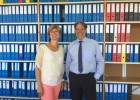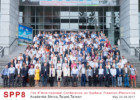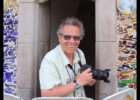Legacies that save lives: Washington Life Science Hall of Fame gets first members

Six medical pioneers were inducted into the newly created Washington Life Science Hall of Fame today, and although some of them have passed away, all of them have contributed to lifesaving technologies that are still works in progress.
Take Karl William Edmark, for example: The founder of Redmond-based Physio-Control invented a direct-current heart defibrillator that was first used to save the life of a 12-year-old girl in Seattle in 1961. Edmark, who was a cardiovascular surgeon as well as a lifelong inventor, died in 1994. But the devices he developed have been repeatedly improved and miniaturized since then.

The improvements were an important factor behind the advent in 1970 of Seattle’s Medic One, a pioneering emergency medical service. Just today, the Medic One Foundation and the Seattle Fire Department announced the city’s official launch of PulsePoint, a smartphone app that alerts citizen responders when someone needs CPR in their vicinity.
“If you’re going to have a cardiac arrest, do it right here in Seattle,” said Cam Pollock, Physio-Control’s executive vice president and chief marketing officer, who accepted the Hall of Fame honors on Edmark’s behalf.
The Hall of Fame was established this year by Life Science Washington (which was previously known as the Washington Biotechnology and Biomedical Association) to honor the state’s pioneers in biotech and biomedicine. Here are the five other inaugural inductees:

E. Donnall Thomas and Dorothy ‘Dottie’ Thomas: This husband-and-wife team led efforts at the University of Washington and the Fred Hutchinson Cancer Research Center to perfect the use of bone marrow transplants to treat leukemia and other blood cancers. Donnall Thomas won a share of the 1990 Nobel Prize in medicine for his work. He died in 2012 at the age of 92, and his wife died at the same age last year.
Beverly Torok-Storb, a clinical researcher at the Hutch, said Donnall Thomas would have been particularly pleased that his wife was sharing in the Hall of Fame recognition. She recalled that Donnall was always quick to share the credit for his Nobel-winning research with Dottie.
The cancer center’s president and director, Gary Gilliland, noted in a statement that the groundwork laid by the Thomases supports today’s advances in immunotherapy and other cancer therapies. “Don’s legacy continues every day at Fred Hutch,” he said.

Donald Baker: After graduating from UW with an electrical engineering degree, Baker worked out a way to use ultrasound and the Doppler effect to measure the flow of blood through the cardiovascular system, non-invasively. That technology was transferred to Bothell-based Advanced Technology Laboratories (a.k.a. ATL, now part of Philips Healthcare).
Baker recounted the story behind the rise of color-flow Doppler sonography and how it can “track the movement of blood with each heartbeat” at today’s Hall of Fame luncheon.

Steven Gillis: This immunologist and venture capitalist has been called the “Fifth Beatle” of Seattle entrepreneurship, ranked with the likes of Microsoft’s Bill Gates and Paul Allen, Starbucks’ Howard Schultz and Amazon’s Jeff Bezos.
He helped found Immunex in the 1980s and Corixa in the 1990s, and then joined Arch Venture Partners in 2005.
Gillis told the Hall of Fame audience that science is like baseball, in that even the best performers miss getting a hit more than half the time. “I must have batted .300,” he joked.

Leroy Hood: The co-founder of Arivale and the Institute for Systems Biology has 750 research papers and 36 patents to his credit.
He was involved in the development of automated DNA sequencers and other instruments that were essential to the genomics revolution. In the 1990s, Hood played a leading role in the Human Genome Project.
His current campaign is “P4 medicine,” which takes a predictive, preventive, personalized and participatory approach to disease treatment and scientific wellness.
Check out Leroy Hood’s predictions about the future of health care.






